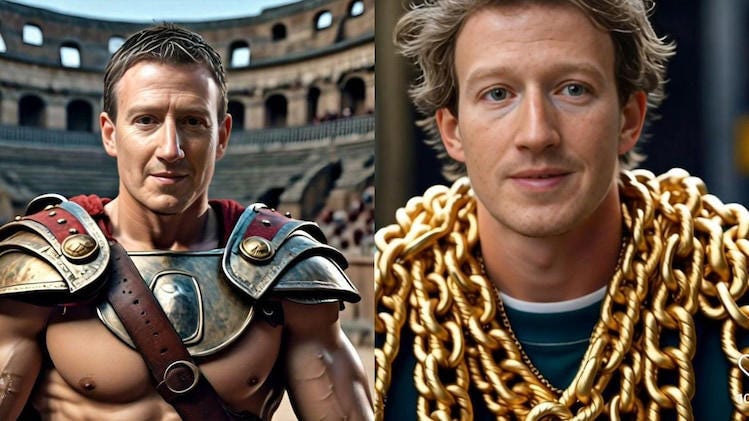Meta AI will be the most used AI assistant by the year end: Mark Zuckerberg on Zuckaissance and open-source future
..AI is gonna take 10 or 15 years to fully materialize as will all the work in the next computing platforms that we're doing. And then my guess is that over that period of time, the next set of things will emerge: Mark Zuckerberg
In this wide-ranging interview with Bloomberg, Zuckerberg reveals Meta's AI strategy, addresses concerns about social media's impact, and the way forward for AI.
Big ideas from Zuck’s interview. By the way, do you use WhatsApp’s AI feature? Tell us in the poll
Meta's Open-Source AI Strategy
Meta is making a significant push into open-source AI, contrasting with closed-source competitors like OpenAI and Google. Zuckerberg believes this approach will strengthen the AI ecosystem and allow Meta to control its destiny in the next generation of technology.
The company recently released Llama 3.1, a family of AI models including the largest open-source model ever at 405 billion parameters. This move aims to enable startups, enterprises, and governments to build custom models for their specific needs, fostering innovation and diversity in AI applications.
AI's Integration
Across Meta Platforms Zuckerberg envisions AI becoming deeply integrated across all Meta products, with a standalone chatbot called Meta AI already gaining hundreds of millions of users.
He predicts Meta AI will become the most used AI assistant in the world by the end of the year. The company is also developing features like real-time image generation as users type queries. Zuckerberg believes that rather than a single, all-powerful AI, the future will see millions of specialized AI models serving various purposes and communities.
I think bubbles are interesting because a lot of the bubbles ended up being things that were very valuable over time and it's just more of a question of timing, like you're asking, right? Even the dot com bubble, you know, it's like there's all this fiber laid and it ended up being super valuable, but it just wasn't as valuable as quickly as people thought.
The Metaverse and AR/VR Development
Despite rebranding the company as Meta and investing heavily in the Metaverse, Zuckerberg acknowledges that progress has been mixed. Some aspects, like the development of AR glasses, have exceeded expectations, while others have been slower to materialize.
He sees the Metaverse as a long-term project and believes that setting up the company to ride different technological waves is crucial. The unexpected rapid progress in AI has influenced their AR/VR strategy, showcasing the need for flexibility in long-term tech development.
AI's Economic Impact and Future Prospects
Addressing concerns about the potential AI bubble, Zuckerberg draws parallels to the dot-com era, suggesting that while there might be some overbuilding now, the infrastructure investments will likely prove valuable in the long run.
He emphasizes the rational decision-making behind major AI investments, as the downside of falling behind in this critical technology could be severe. Zuckerberg also discusses Meta's pursuit of artificial general intelligence (AGI), acknowledging the complexity of defining and achieving true AGI.
Social Media's Role in Elections and Mental Health
Regarding the 2024 U.S. presidential election, Zuckerberg indicates that Meta will play a less prominent role compared to previous elections. The company is focusing on reducing political content recommendations and giving users more control over their feeds.
On the topic of social media's impact on mental health, particularly among teenagers, Zuckerberg acknowledges the importance of the issue but argues that current scientific evidence doesn't strongly support a direct causal link between social media use and mental health problems.
You agree?




